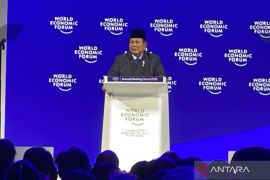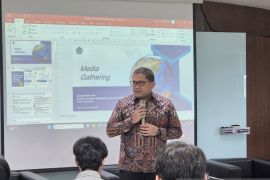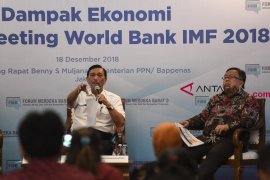"The results of the economic assessment, as contained in the Article IV Consultations Report, were discussed previously at the IMF Executive Board Meeting in Washington D.C., United States, on July 3, 2019," Executive director of Bank Indonesia's communication department, Onny Widjanarko, said in a statement here, Thursday.
Bank Indonesia has welcomed the latest assessment of Indonesia’s national economy conducted by the International Monetary Fund (IMF), which was delivered in the Article IV Consultations 1 released today.
The IMF acknowledged that the policies instituted by Bank Indonesia, the Government and other relevant authorities have effectively mitigated the impact of external headwinds since the beginning of 2018, Widjanarko said.
The IMF’s Board of Directors commended the focus of the policy mix, which is oriented on supporting the stability of the macroeconomic and financial systems, safeguarding the buffers and overcoming vulnerabilities.
Furthermore, the Board of Directors expressed its appreciation over the ongoing efforts to improve infrastructure, streamline regulations, as well as to reform health care and education.
Moving forward, the IMF forecasts a promising economic outlook for Indonesia but emphasized the need to remain vigilant of the emerging risks, external in particular.
The IMF also reiterated the importance of continuing structural reforms, especially in terms of implementing the medium- to long-term revenue strategy, as well as deepening of the financial market, Widjanarko said.
The IMF's positive stance is congruent with the results of Bank Indonesia's own assessments, which have shown how economic resilience is improving in Indonesia.
In that context, the Governor of Bank Indonesia stated that the positive economic achievements made in Indonesia throughout 2018 and the first half of 2019 are inextricably linked to policy synergy and the commitment of Bank Indonesia, the Government and other relevant authorities in terms of building national economic growth momentum, as well as maintaining macroeconomic and financial system stability.
To that end, Bank Indonesia constantly optimizes its mix of monetary, macro prudential and payment system policies in order to maintain macroeconomic and financial system stability.
Meanwhile, the Government is currently reforming the tax structure in Indonesia and improving the quality of budget-spending with a focus on infrastructure projects, education and health care.
In addition, the Government and Bank Indonesia will continue structural reforms to enhance the investment climate, improve infrastructure and deepen the financial markets, Widjanarko said.
Reporter: Azis Kurmala
Editor: Bambang Purwanto
Copyright © ANTARA 2019









